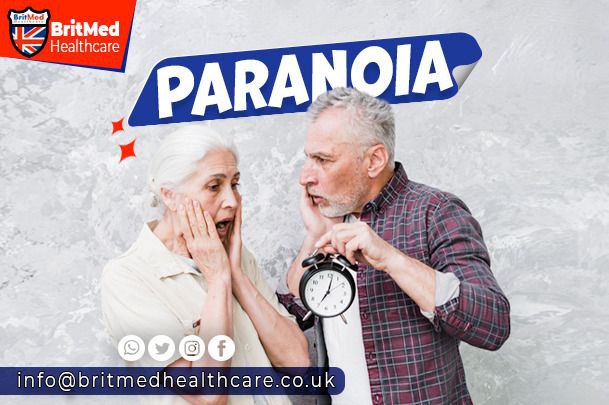Paranoia: Etiology, Manifestations, and Interventions
Paranoia is a psychiatric condition that affects cognition, emotions, and behavior. It is a profound condition characterized primarily by a disruption in the coherence between thoughts, emotions, and behaviors. As a result, this lack of connection can cause difficulties in interpersonal relationships, work performance, and social functioning.
Categories of Paranoia
There are various varieties of paranoia, including but not limited to, the following:
• Paranoid personality disorder is characterized by a pervasive and all-encompassing suspicion and mistrust of others.
• Paranoia schizophrenia is a type of psychotic disease characterized by hallucinations and delusions.
• Co-occurrence of paranoid personality disorder with schizophrenia: in this scenario, paranoid personality disorder is present alongside schizophrenia
Factors contributing to the development of paranoia
There is a scarcity of information regarding the etiology of paranoia. However, several variables can contribute to its growth. Several examples of them include:
– Traumatic events: When a person goes through a traumatic event, it is probable that they will develop paranoia.
– Genetic predisposition: The likelihood of developing paranoid is increased if there is a family history of the condition.
– Substance addiction, whether through drugs or alcohol, can induce the development of paranoia.
– Stress: Prolonged stress might cause an individual to experience a state of paranoia.
Indications of Paranoia
The symptoms may differ among individuals but encompass:
– Paranoia and skepticism towards others
– False beliefs and sensory perceptions
– Impaired ability to focus and maintain attention
– Avoidance of social interactions
– Sensation of being observed or pursued
Treatment for Paranoia
The typical approach to treating paranoia involves a combination of medication and psychotherapy, known as a multi-modality treatment. The objective of treatment is to decrease symptoms, enhance functioning, and improve the overall quality of life.
Categories of Therapeutic Interventions
Several typical therapeutic modalities for paranoia include:
– Cognitive-behavioral therapy: This therapeutic approach assists individuals in modifying pessimistic thinking and the corresponding behaviors they are linked to.
– drugs: Anti-psychotic drugs aid in reducing symptoms.
Family therapy facilitates improved communication between clients and their families.
Managing Paranoia
Paranoia is effectively managed by individual self-care and expert intervention. To address paranoia, consider using the following straightforward recommendations:
– Relaxation techniques such as meditation and deep breathing can be effective in promoting relaxation and reducing stress levels.
-Engaging in regular exercise and physical activities can contribute to overall well-being and help manage symptoms of stress.
– Receiving ample amounts of love, care, and support from loved ones or therapists can have a positive impact on one’s mental health.
– Avoiding triggers of symptoms and stressful conditions can help prevent exacerbation of stress-related symptoms.
In conclusion
Paranoia is a multifaceted psychiatric disorder that necessitates thorough and appropriate therapy and support. By employing effective treatment modalities and implementing ways to effectively manage symptoms, individuals afflicted with the condition can attain mastery over their symptoms, leading to an enhanced quality of life and improved overall well-being.
Hashtags:
#Paranoia
#MentalHealth
#BritmedHealthcare
#NightingaleHospital
#TopDoctorsUK
#ProfessorAhmedElMissiry
#MentalHealthAwareness
Websites:
For more articles visit Britmed Healthcare https://britmedhealthcare.co.uk/blog/
Do book a Consultation with Professor Ahmed El-Missiry https://www.nightingalehospital.co.uk/specialist/prof-ahmed-elmissiry/
You can also book on Top Doctors UK Contact us on WhatsApp 08009708017
Top Doctors: https://www.topdoctors.co.uk/doctor/ahmed-el-missiry




